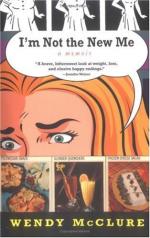The two actors entered the theatre; they occupied the same dressing-room, and the volatile Lemoine talked incessantly. Although there were but few people in the stalls, the gallery was well filled, as was usually the case. When going on for the last act in the final scene, Dupre whispered a word to the man who controlled the falling of the curtain; and when the actor, as the villain of the piece, received the fatal knife-thrust from the ill-used heroine, he plunged forward on his face and died without a struggle, to the amazement of the manager, who was watching the play from the front of the house, and to the evident bewilderment of the gallery, who had counted on an exciting struggle with death. Much as they desired the cutting off of the villain, they were not pleased to see him so suddenly shift his worlds without an agonizing realization of the fact that he was quitting an existence in which he had done nothing but evil. The curtain came down upon the climax, but there was no applause, and the audience silently filtered out into the street.
“There,” said Dupre, when he returned to his dressing-room, “I hope you are satisfied now, Lemoine, and if you are, you are the only satisfied person in the house. I fell perfectly flat, as you suggested, and you must have seen that the climax of the play fell flat also.”
“Nevertheless,” persisted Lemoine stoutly, “it was the true rendition of the part.”
As they were talking, the manager came into their dressing-room. “Good Heavens, Dupre!” he said, “why did you end the piece in that idiotic way? What on earth got into you?”
“The knife,” said Dupre, flippantly. “It went directly through the heart, and Lemoine, here, insists that when that happens a man should fall dead instantly. I did it to please Lemoine.”
“But you spoiled your curtain,” protested the manager.
“Yes; I knew that would happen, and I told Lemoine so; but he insists on art for art’s sake. You must expostulate with Lemoine; although I don’t mind telling you both frankly that I don’t intend to die in that way again.”
“Well, I hope not,” replied the manager. “I don’t want you to kill the play as well as yourself, you know, Dupre.”
Lemoine, whose face had by this time become restored to its normal appearance, retorted hotly:
“It all goes to show how we are surrounded and hampered by the traditions of the stage. The gallery wants to see a man die all over the place, and so the victim has to scatter the furniture about and make a fool of himself generally, when he should quietly succumb to a well-deserved blow. You ask any physician, and he will tell you that a man stabbed or shot through the heart collapses at once. There is no jumping-jack business in such a case. He doesn’t play at leap-frog with the chairs and sofas, but sinks instantly to the floor and is done for.”
“Come along, Lemoine,” cried Dupre, putting on his coat, “and stop talking nonsense. True art consists in a judicious blending of the preconceived ideas of the gallery with the actual facts of the case. An instantaneous photograph of a trotting horse is doubtless technically and absolutely correct, yet it is not a true picture of the animal in motion.”




